
by Bill Cummins | Mar 30, 2023 | News
Plants make popping sounds that are undetectable to the human ear, according to recordings made in a new study — and they make more sounds when thirsty or under other kinds of stress.
The research shakes up what most botanists thought they knew about the plant kingdom, which had been considered largely silent, and suggests the world around us is a cacophony of plant sounds, said study coauthor Lilach Hadany.
She said she had long been skeptical that plants were completely noiseless.
Check out the rest of this amazing story at this CNN link.

by Bill Cummins | Mar 21, 2022 | News
An update from Judy Ryon and Sue Lynch..
Judy emailed that a second bin and leaves were kindly delivered by the Conservation Commission during the winter for our use as mulch. Unfortunately, the leaves were placed in both of our bins.
Since one of the bins should be used for leaves/mulch and the other for garden debris, Judy asked for volunteers to make signs for the bins and to also consolidate the leaves and mulch into one bin so that the other bin can be used for garden trash/waste. [There were no signs posted to distinguish them so early gardeners had been dumping weeds and plot waste on top of the leaves..]
This past weekend, the Lynches and Gary Bowden worked to clean up the bins and ready them for the season. Per Sue, “the bin closest to the main drive has the ground-up leaves that can be used for mulch/compost for the garden. The other bin is ready for weeds and garden waste.”
Thanks to all involved.
Here’s to good weather for a fun and prosperous growing season!

by Bill Cummins | Jul 15, 2021 | Miscellaneous, News
A message from Rick Francolini and Ginia Pati.
Hello Sea Call Growers,
Thanks to the very generous support of Judy Scanlon from Lake Farm Gardens, Sea Call has been gifted hundreds of mature vegetable plants, ready for planting, This donation has been provided to support Sea Call’s “Growing for Giving” initiative which provides fresh produce to a non-profit group that prepares healthy meals to local community members in need. Our non-profit partner is “LOCAL” – which is the Lower Cape ecumenical food program – and meals are prepared and distributed from St. Joan of Arc church.”
This effort is being led by Ginia Pati and the group of growers who contribute to her efforts at plot #22.
There is a wide assortment of tomatoes, eggplants and peppers available to all Sea Call gardeners who agree to plant them and then donate the produce harvested. Please mark any vegetables you plant by tying a piece of green ribbon (which is provided by the plants) to the stem of the plants you adopt. Most importantly, if you plan to participate, the time to plant is now. Please plan to do so by this weekend to maximize the success of this effort.
The plants are available now and are located adjacent to the fences which face Tonset Road and the driveway. Thanks in advance to all who participate. Feel free to contact me or Ginia (giniapati@gmail.com) with any questions.
Anne and I just planted 5 eggplant plants. They’re beautiful! Will be fun to watch them grow and then donate the produce.
NOTE THAT THERE ARE DONATED PLANTS AT BOTH THE ROADSIDE AND DRIVEWAY-SIDE GARDEN ENTRANCES!
Thanks to all involved!

by Bill Cummins | Jul 9, 2021 | News
“Your Overall Quality Score is 80, which is in the Very High range.” That’s what a recent report from the Soil Health Laboratory at Cornell University’s Department of Soil and Crop Sciences concluded.
This is the first year that we’ve had Cornell do the soil testing here at Sea Call Farm. The report provides a baseline to follow for the future as we continue our switch over to a no-till approach for preparing our garden plots for the next Spring’s growing season.
Our previous nutrient testing was performed by UMass Amherst. A structural analysis was done in 2020 by the USDA, but this is the first time we’ve had biological testing performed.
Cornell’s lab is the gold standard for soil analysis.
To view the 2021 Comprehensive Assessment of Soil Health report from Cornell’s Soil Health Laboratory, click here.
The 10-page report gives a breakdown of various indicators and assigns a rating to each. It also calculates the total score of 80 mentioned at the top of this post. The last pages of the report are dedicated to short-term and long-term recommendations for managing “Physical and Biological Constraints”.
Enjoy! And keep up the good work!

by Bill Cummins | Jul 9, 2021 | Events, News
A recent note from fellow gardeners Judy Ryon and Ginia Pati. Re-posting here for all to view.
Good morning Sea Call Gardeners,
As you all know, we will be continuing to donate our garden produce to others this year. Here is an update from Ginia:
The gardeners of Plot #22 (First Light Sangha: a local Buddhist meditation group) are once again growing and giving all of their fresh vegetable produce to a nonprofit group that provides fresh, healthy meals to our local community members in need: “LOCAL” is the Lower Cape ecumenical food program prepared and distributed from St Joan of Arc church.
If any gardener has ‘extra’ produce during the summer season that can be donated to their efforts, please contribute into the ‘cooler’ that will be placed next to the inside of the main gateway of Sea Call garden, for regular pickup. (And if you have an unneeded old cooler, they would be grateful to borrow it for the summer).
Throughout the summer they will be appreciative for any of your ‘extras’/garden contributions for St Joan of Arc meal preparations!!
Thank you all for your participation in this wonderful endeavor.
Judy
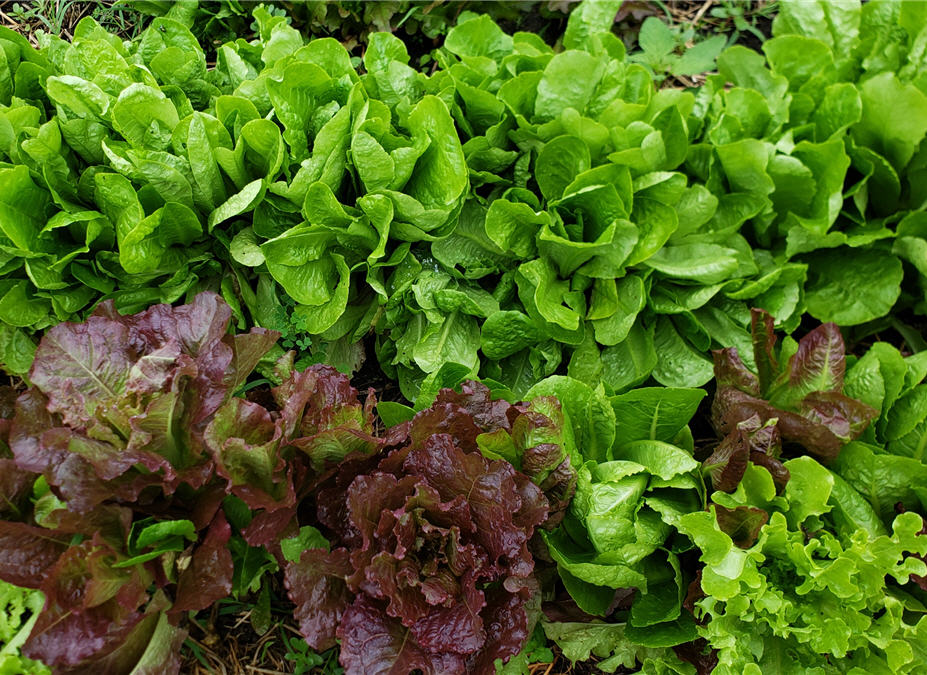



by Anne Cummins | Jun 13, 2021 | Miscellaneous, News
Gardens are really shaping up and looking good at Sea Call Farm. The cover crops have been trimmed and are now being utilized as mulch, row dividers and water retention material for individual plots. From a beautiful sea of crimson clover, sweet peas and oats that covered Sea Call Farm over the winter and spring, you’ll now see 10’ x 20’ and 20’ x 20’ plots that feature a wide array of wonderful veggies and flowers, some just starting to grow and many well underway. Gardeners have been busy at work sowing seeds and planting seedlings and starter plants, weeding and watering, and helping others.
It’s interesting to note the various approaches that Sea Call gardeners have taken with their plots – double digging, raised beds and mounds, fabric or plastic cover to reduce weeds, mulch from the cut cover crops or from chopped leaves or salt hay, various frames and supports for tomatoes and vines, etc. Local birds, butterflies, bees and dragonflies are loving the garden, and bird chirps and calls are a wonderful background feature from dawn to dusk at Sea Call.
Popular crops include tomatoes (of course), peppers both sweet and hot, green beans, peas, eggplant, a multitude of greens including kale, chard, many lettuce varieties, spinach and arugula, onions and shallots, Brussels sprouts, beets, radishes, and others too numerous to list. It’s fun to see fellow gardeners carry in their seeds and seedlings, to observe the various strategies of planning and planting, to share in nurturing and watering the crops, to compare notes and stories about gardening successes and failures, and eventually to cheer on the harvesting of plentiful produce. It’s a long and labor-intensive process, but a wonderfully worthwhile endeavor to garden at Sea Call Farm.
Once produce is ready for harvest, gardeners are welcomed and encouraged to donate excess produce via the on-site veggie collection for food bank distribution. Truly a community garden! Details to follow regarding the food bank!
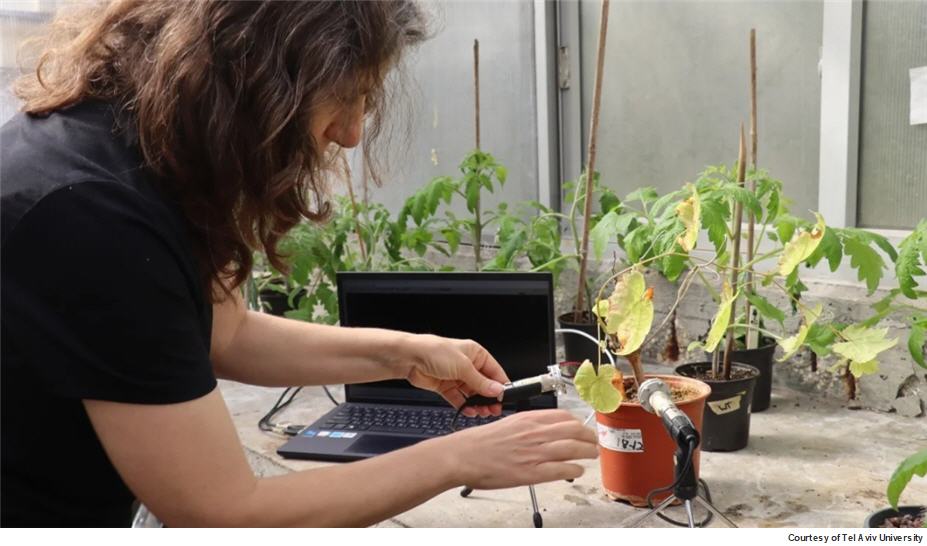
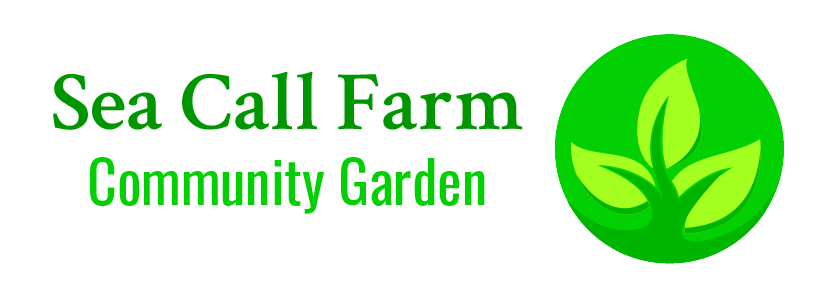
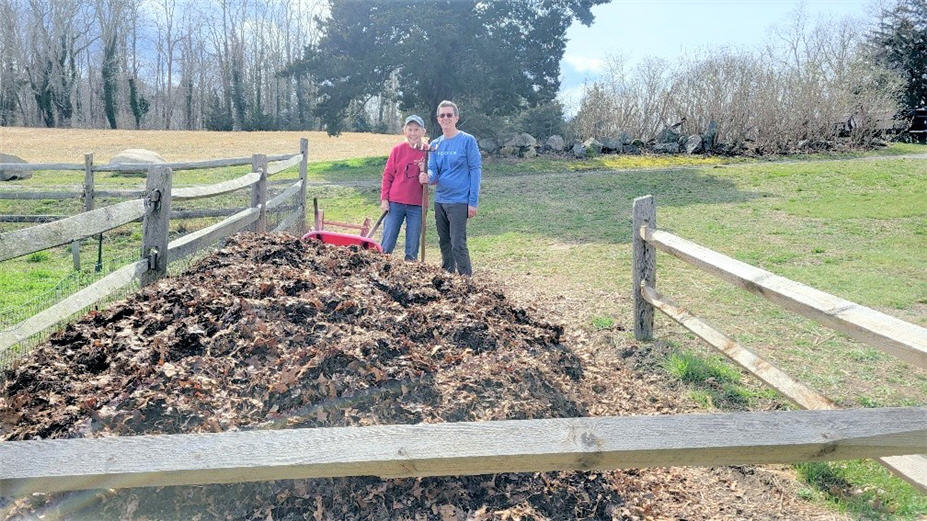
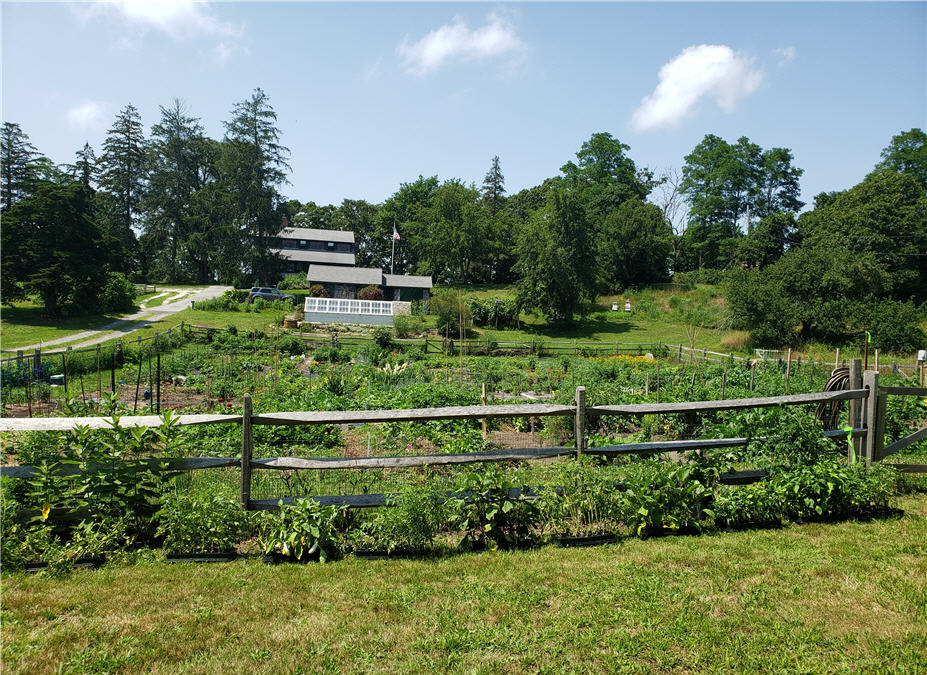
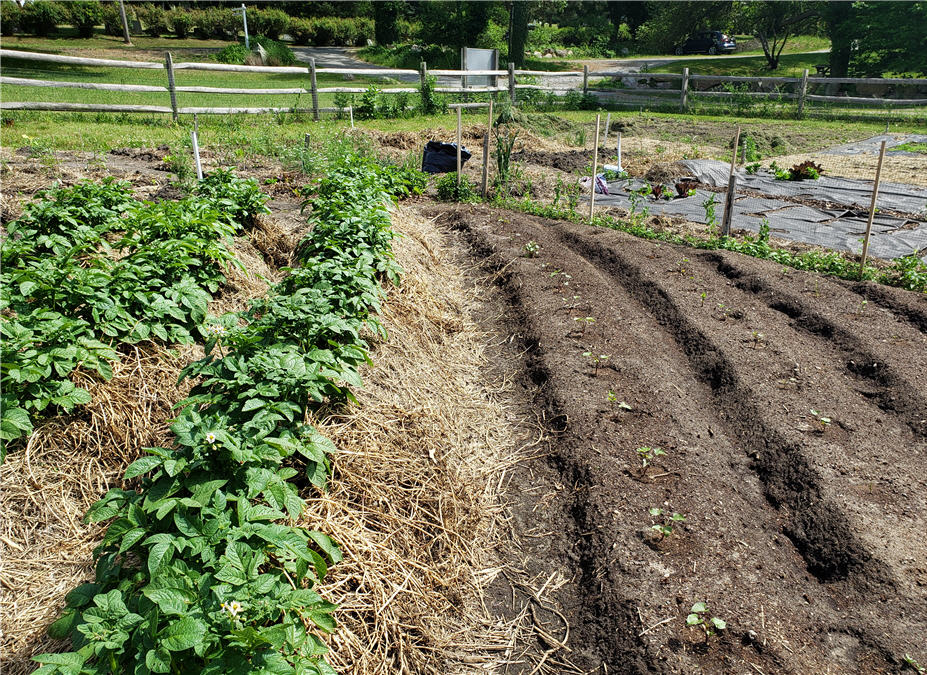
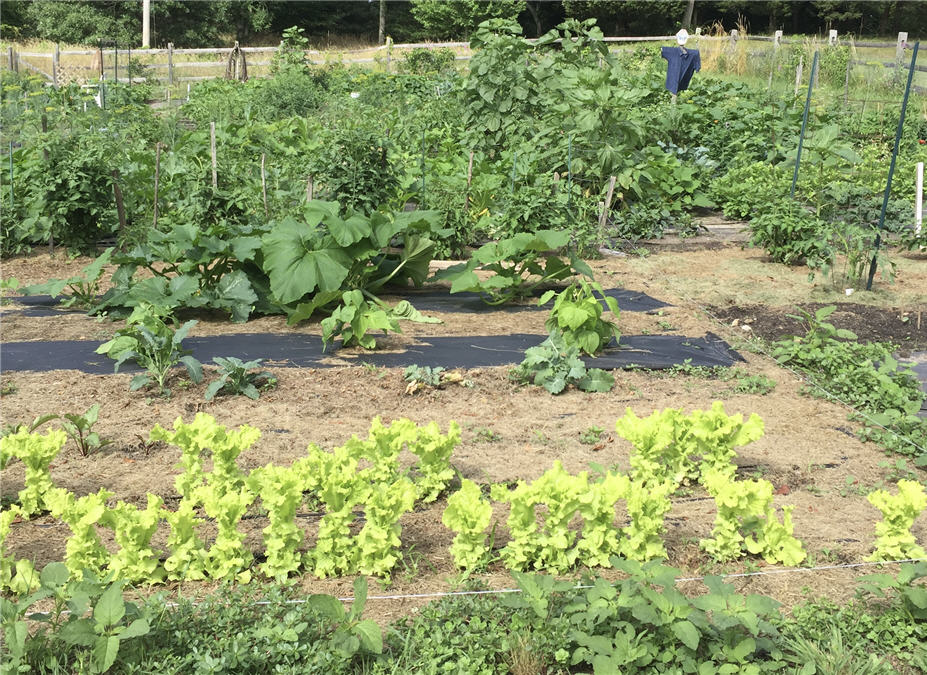

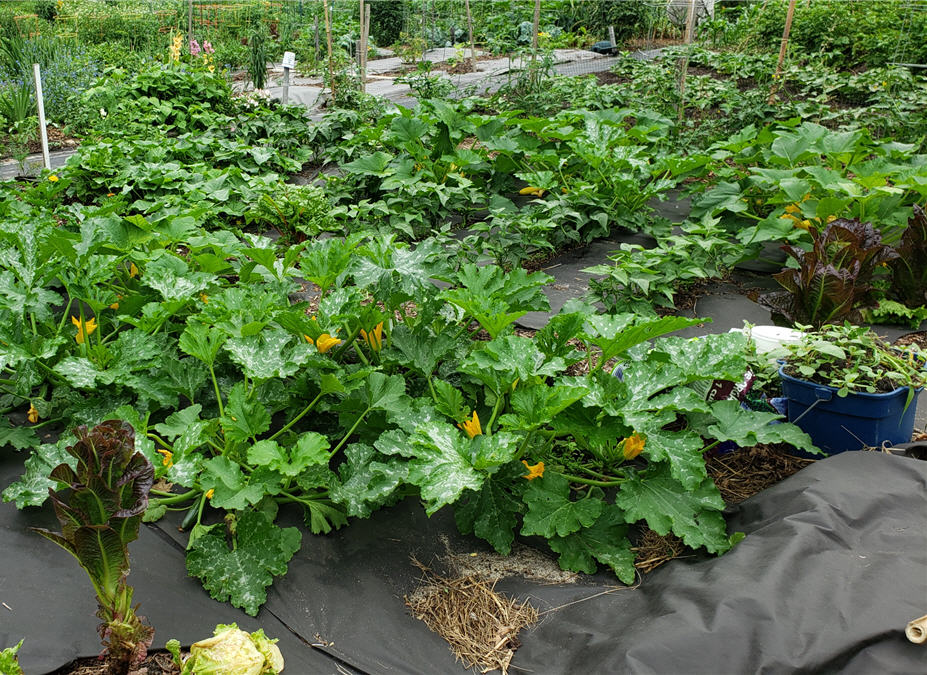
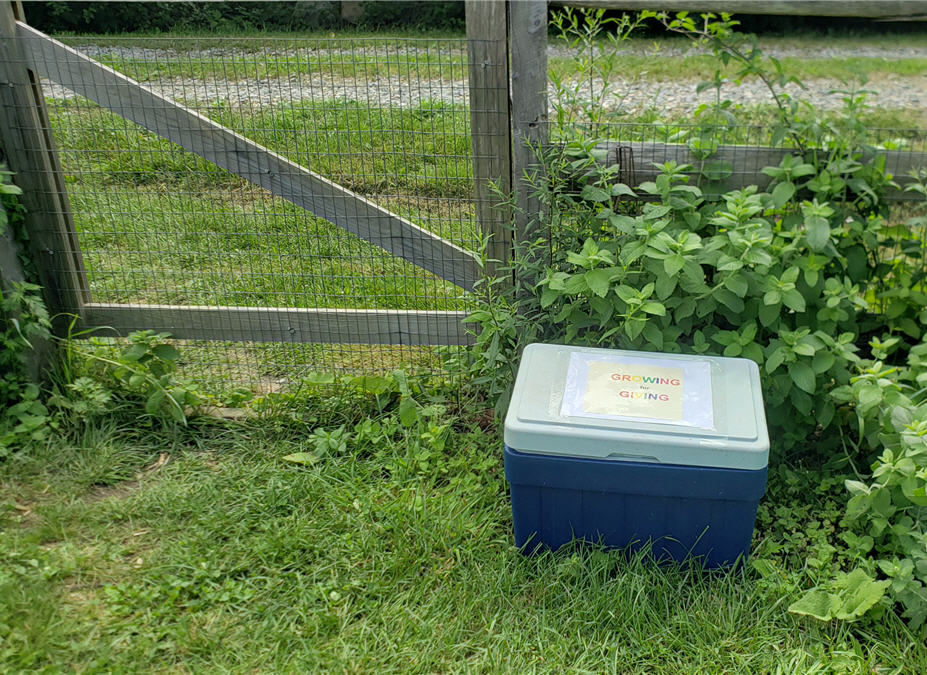
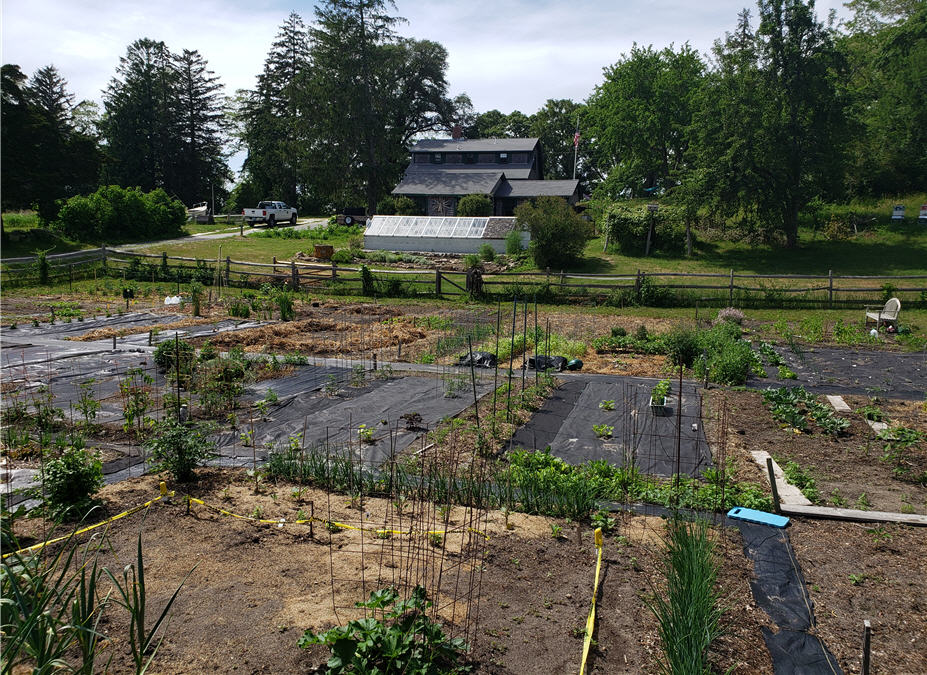
Recent Comments